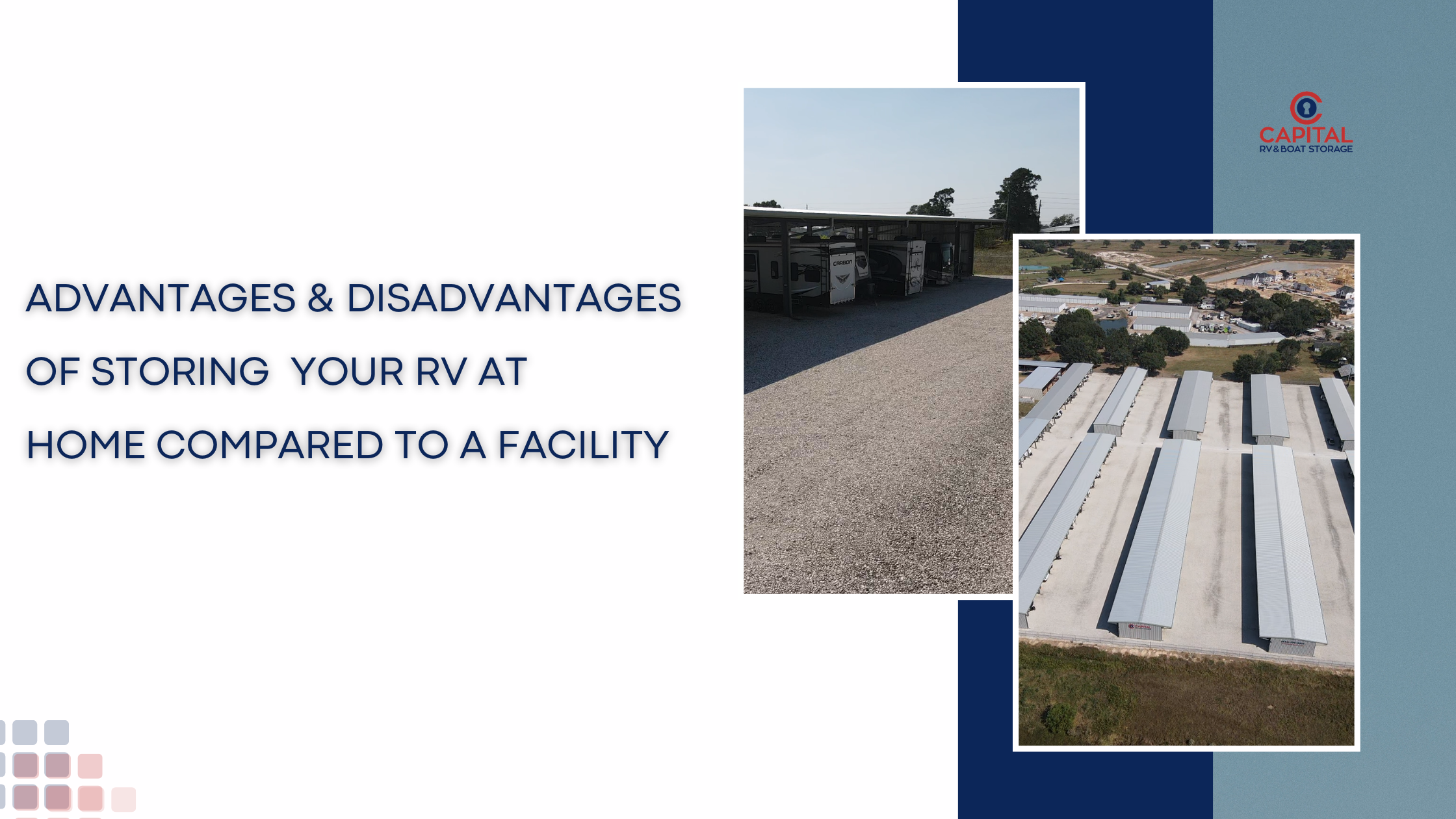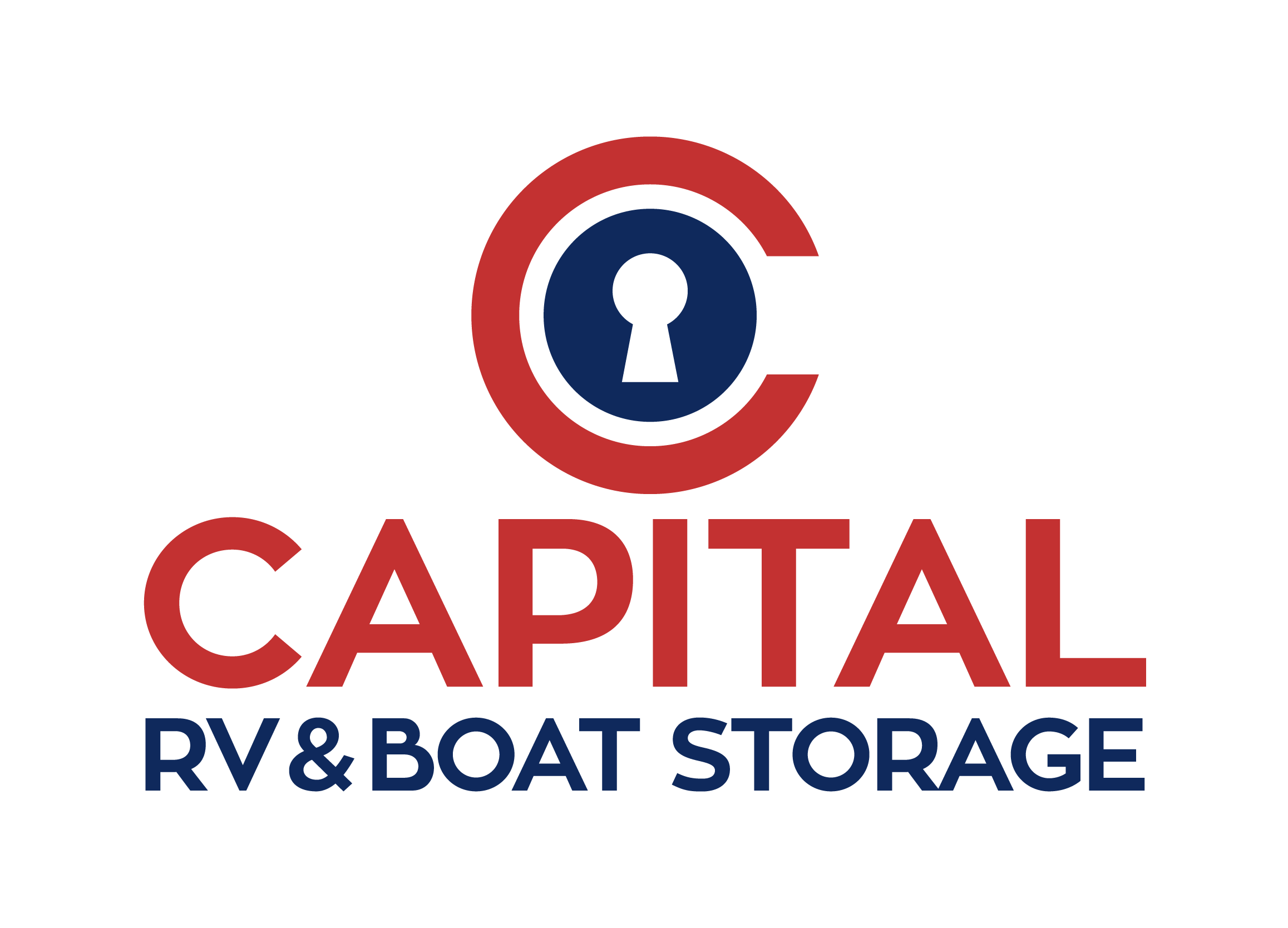Home or Facility: Where Should You Store Your RV?

It's crucial for RV owners to choose the proper storage solution to protect their investment and maintain their vehicle's excellent condition. Although it might be tempting to think that parking the RV at home is the most convenient, using a storage facility also offers plenty of upsides. This article will delve into the benefits and potential snags of both home and storage facility RV parking and will hopefully help you make the right decision for you and your RV.
Many RVers ponder whether they should keep their vehicles at home or put them in a
vehicle storage facility. Home storage seems easy enough, and why not save a few bucks along the way? Lets evaluate the advantages and disadvantages of two different storage options for your RV:
keeping it at home or putting it in a storage facility
Advantages
Storing your RV at your residence is convenient for performing loading, unloading, and maintenance activities of this type of vehicle.
There are two main reasons why people choose to keep their belongings with them. One is cost savings; it is also possible (and perhaps even likely) that available space on one's own property can be had at a lower cost than when paying monthly rent for a storage unit.
Maintain authority:
You get to decide what your RV's storage environment looks like and are attentive to any issues that might arise in it.
Disadvantages
Limited space in your household might wall off the size of the RV you can have, and there might be another layer of restrictions if certain types of housing or neighborhood rules govern what can be built on a lot and how an RV used for temporary living space might fit into that scheme.
Security Worries:
Recreational vehicles kept at home can be more open to being stolen, damaged by both people and the weather, and simply mistreated than those that are stored in secure facilities, such as RV storage lots.
Storing your RV at home can lead to various maintenance problems. Indeed, it is a key concern because the hazards range from pests to rust and fading. When an RV is left sitting for a while in the open, weather can fade the paint and damage the roof and windows. When a vehicle is left in a location where there are lots of leaves, it becomes a prime spot for moisture and rot—even when the vehicle is properly covered.
Read More: Essential Off-Season Maintenance Tips for Optimal Performance
Using a Storage Facility to Store Vehicles
Advantages
The enhanced security features like gated access and surveillance cameras make sure that one’s RV is safe from theft and vandalism.
There are storage choices with different kinds of roofs to keep your RV completely covered. These protect the RV by keeping it out of extreme weather. In some cases, these storage options offer shade.
You won't have to worry about dealing with an RV when you're not using it. Thanks to awesome amenities, including electric hookups and means for sewer disposal, the storage facility implies that your RV is not only welcome but will also be coddled in your absence.
Disadvantages
Expense:
You must
pay to store your RV at a facility. This means rental fees, and those can mount up over time.
Indeed, the
location of the storage facility is something to be considered when you think about the ease of accessing your RV inside a unit. The time it takes and the bulk it requires for an RV to be put on the road need to be considered when you find that perfect storage facility for your situation.
Capital RV & Boat Storage is the ideal place to store your RV with security and convenience unmatched by any other
Storage facility in Katy. We offer tailor-made, flexible packages that suit not only the varied storage needs of our customers but also their unique lifestyles.
Our very friendly and knowledgeable team is devoted to delivering top-notch service and making sure your storage experience is the best it can be.
Explore: How to Choose the Correct Storage Facility for Your Boat in Katy, TX
EndNote
To wrap things up, the choice to keep your RV at home versus a facility fails to offer a simple, one-size-fits-all solution. That's because multiple factors—like how much space you have access to, any potential security problems you might encounter, the convenience of these two storage possibilities, and, of course, the cost of each—have to be taken into account. When actually making this decision, you should carefully consider what storage method will serve you and your vehicle best.


